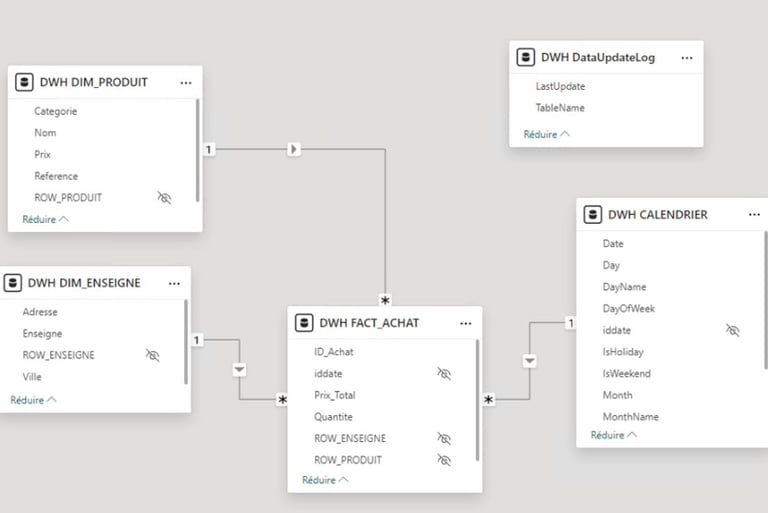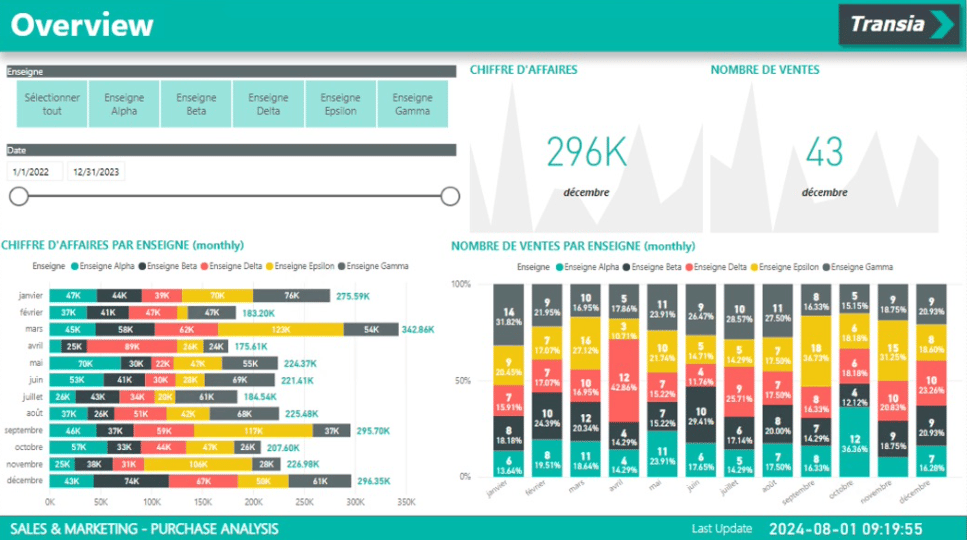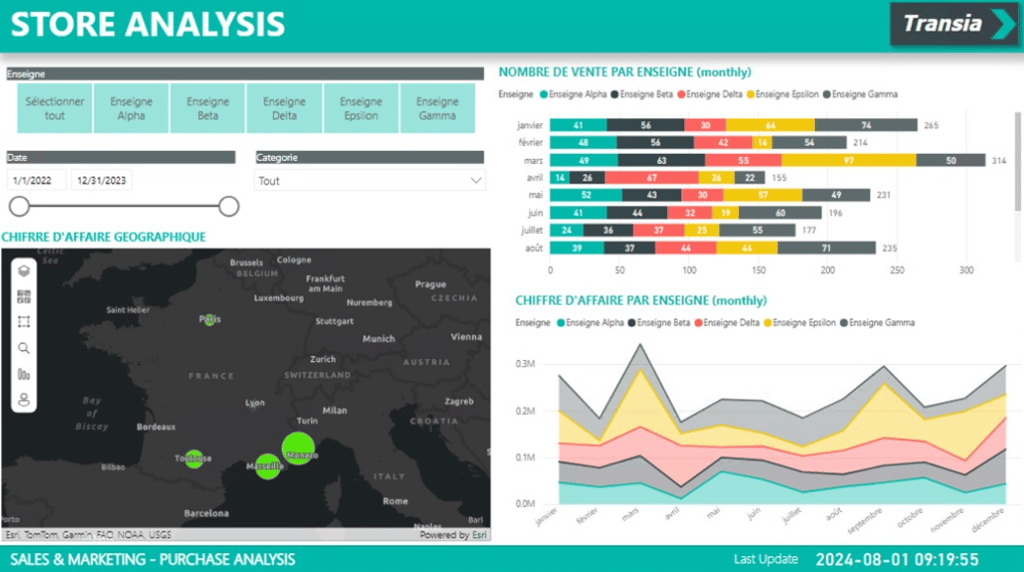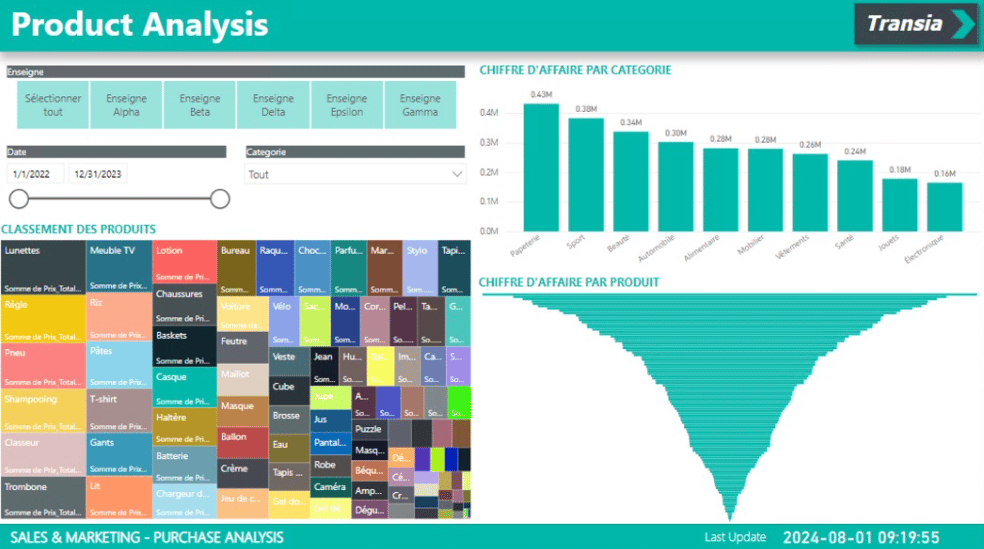Business Intelligence on Microsoft Azure
As part of a demonstration of Business Intelligence (BI) tool capabilities, this fictional project illustrates the implementation of a cloud-based decision-making solution on Microsoft Azure. The objective is to centralize purchasing data for a fictional company, Transia, in order to analyze it and provide clear indicators to decision-makers. This practical case study showcases all key steps, from data storage in a Data Lake to the creation of an interactive dashboard using Power BI.
MICROSOFT AZUREDATA LAKEDATA WAREHOUSEBUSINESS INTELLIGENCEPOWER BI
2 min read
Objectives
This project aims to centralize an organization's purchasing information to enable effective analysis and informed decision-making.
To achieve this goal, an initial phase has been outlined, focusing on the collection and analysis of purchasing data. This data, sourced from multiple files, includes the following elements:
Stores: Location and details of retail outlets.
Products: Catalog of marketed items, including their categories and prices.
Purchases: Transaction history, including dates, quantities, and total amounts.
Key Steps
Creation of a Data Lake
The original files were stored in an Azure Data Lake, a centralized and secure space for managing raw data.Data Integration and Storage
Using Azure tools, an Operational Data Store (ODS) was populated before organizing the data into a Data Warehouse. This structure ensures optimized organization for analysis.Dashboard Creation with Power BI
The consolidated data was used to build an interactive and dynamic dashboard using Power BI. This dashboard provides decision-makers with key indicators such as:Store performance.
Best-selling product categories.
Trends in purchases over time.
Tools and Technologies
Microsoft Azure: For data storage and processing.
Power BI Desktop: For visualization and presentation of analyses.
SQL: For data manipulation within the warehouse.
Deliverables
The project produced several key deliverables:
A Power BI dashboard in PBIX format, enabling instant data visualization.
A resource hosted on Azure, including a Data Lake, Data Warehouse, and a pipeline for data ingestion and structuring.








